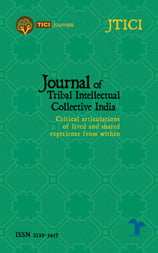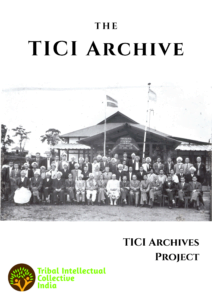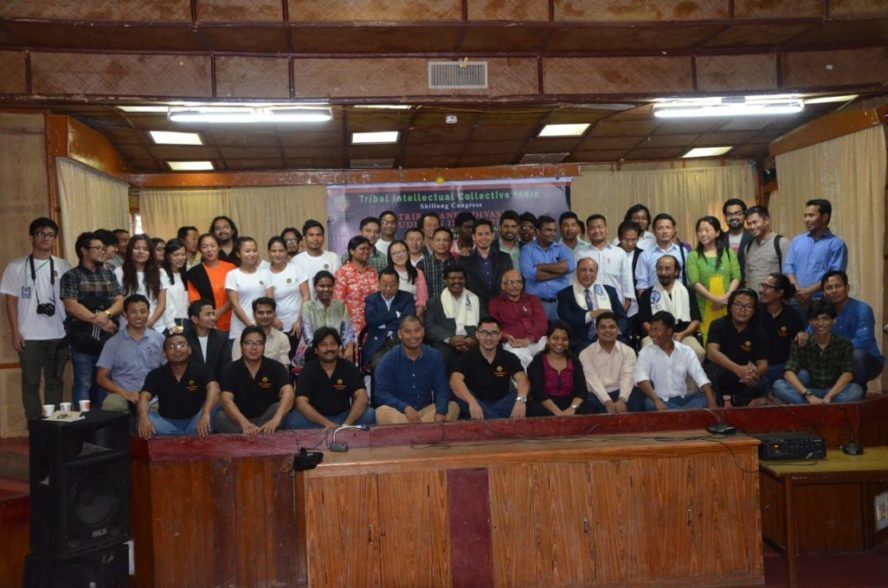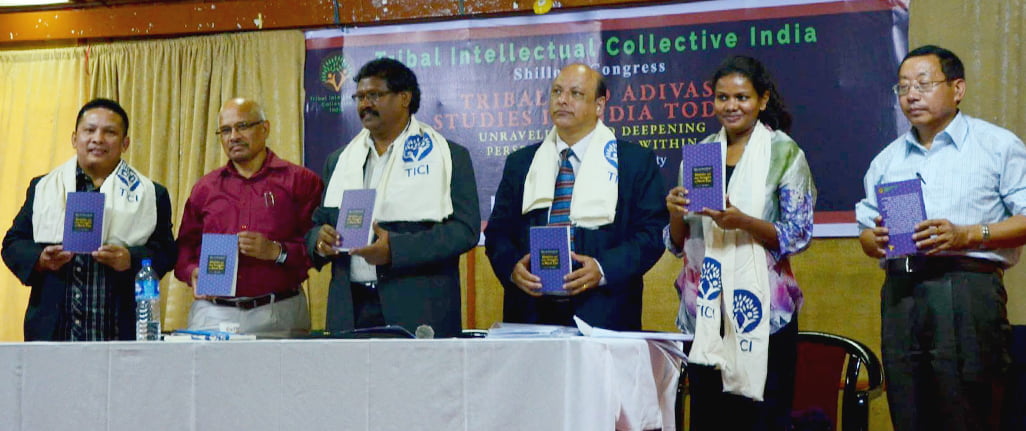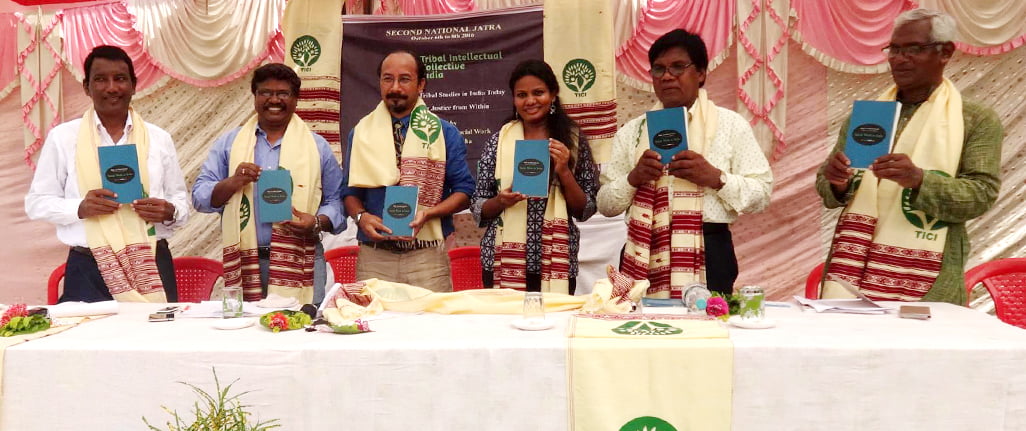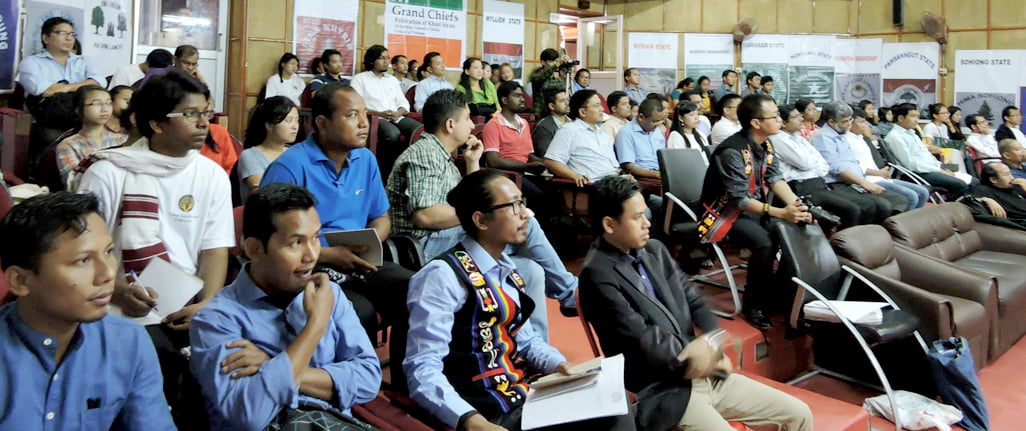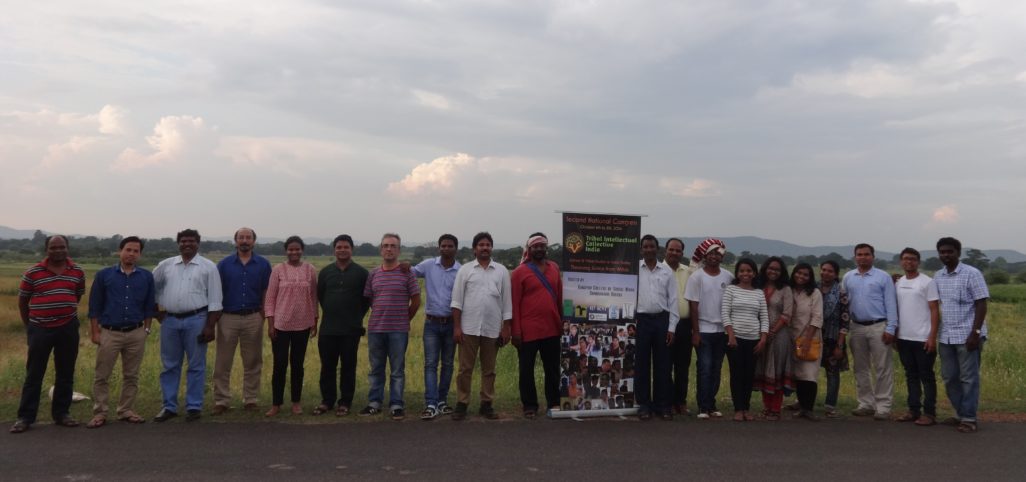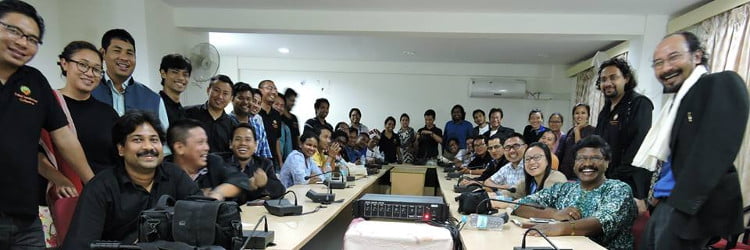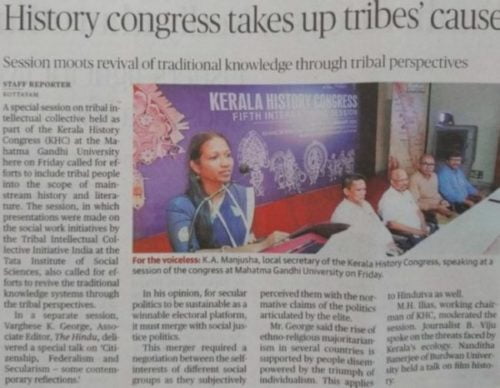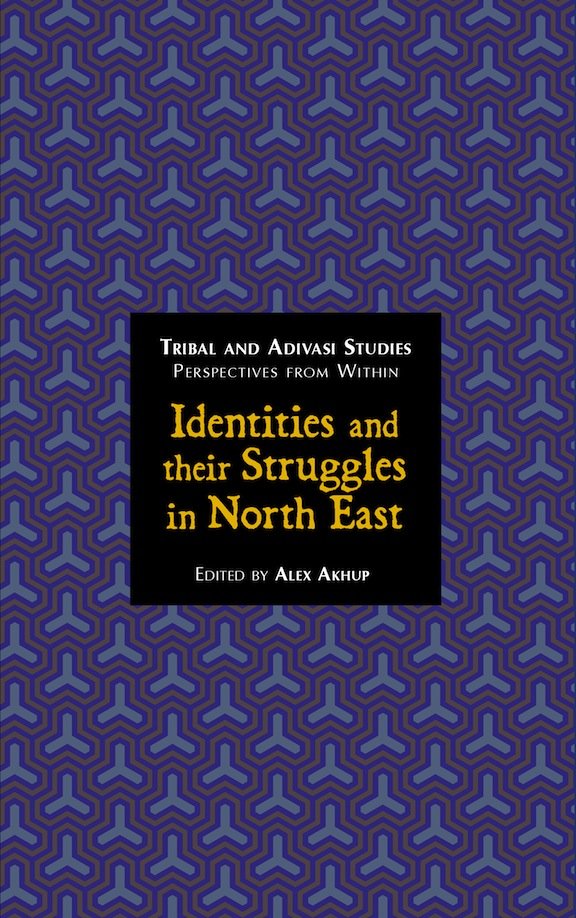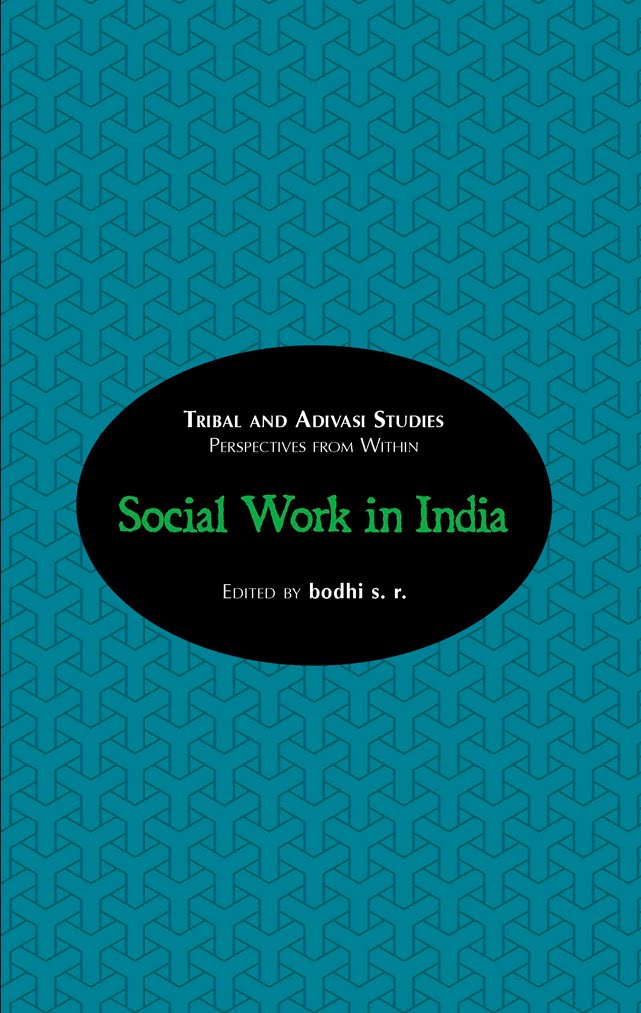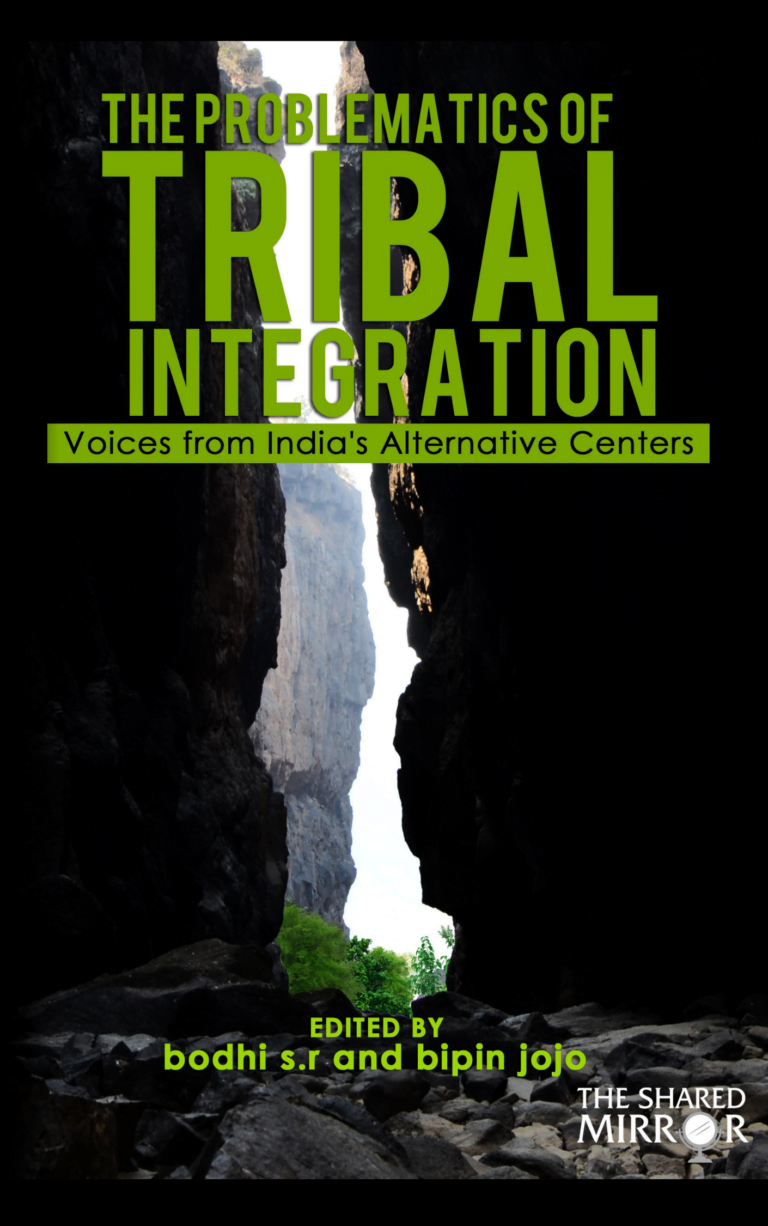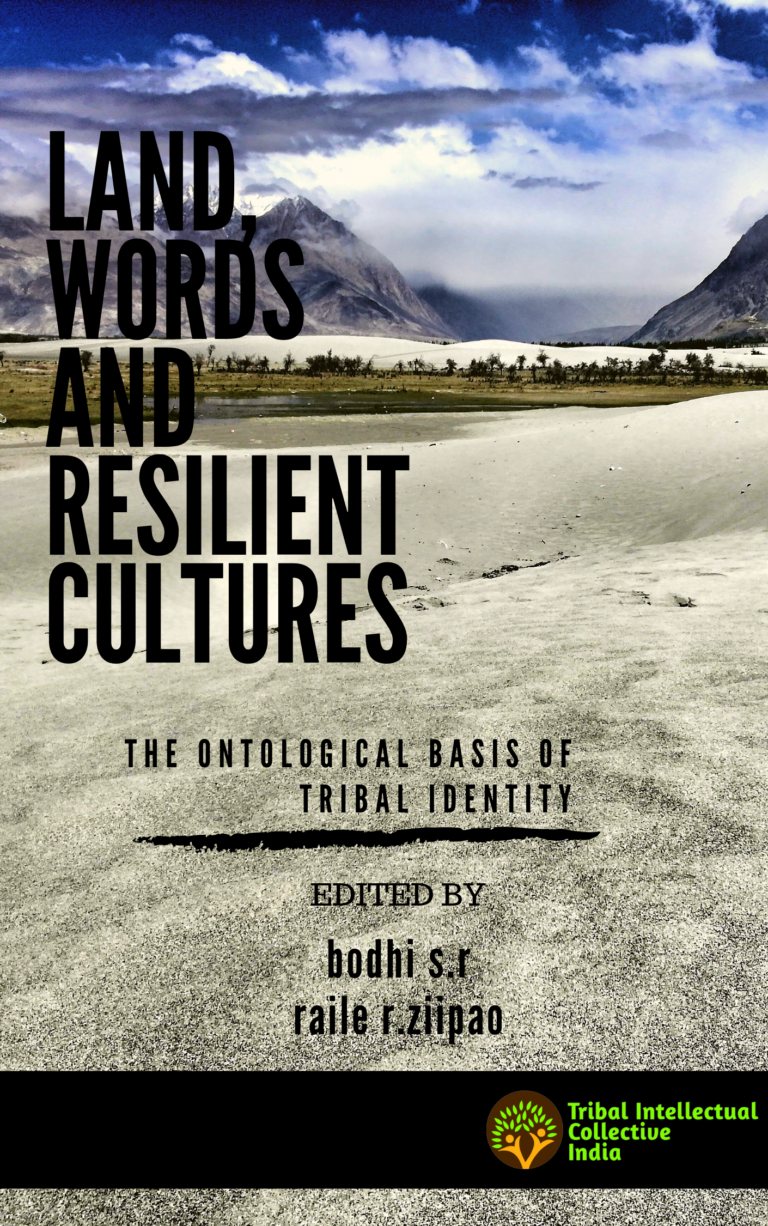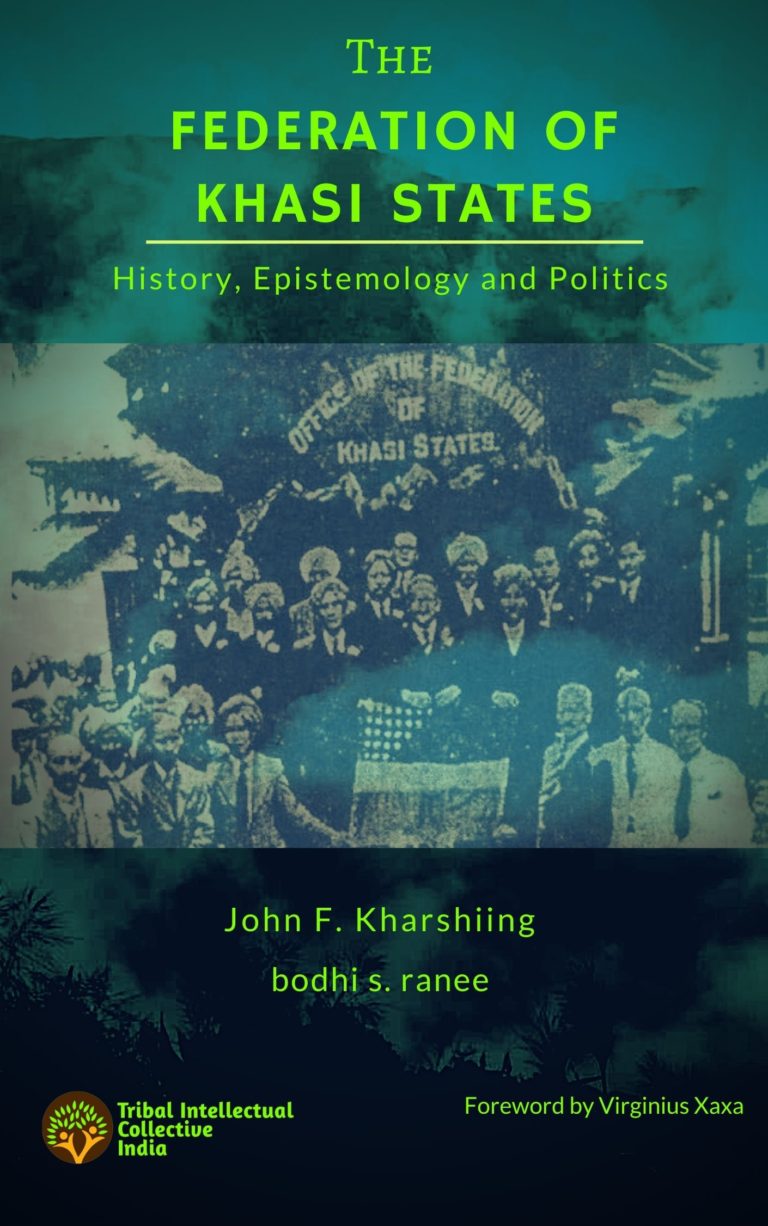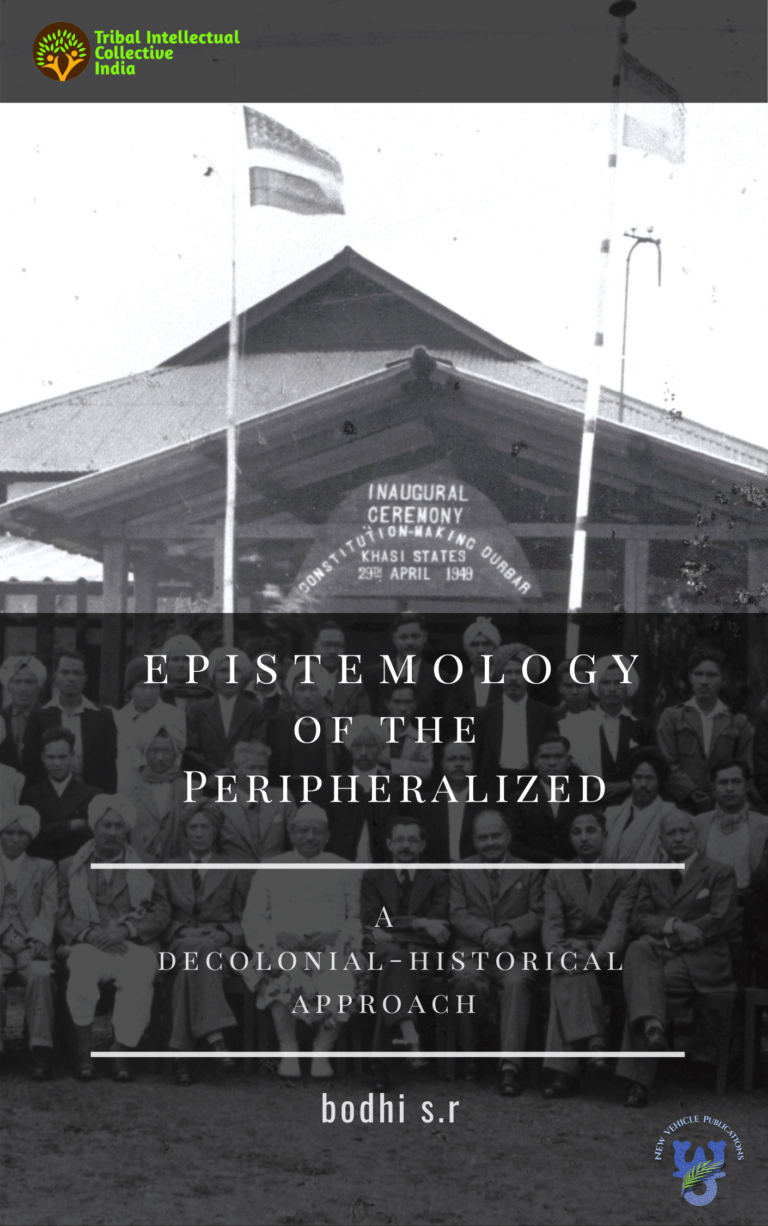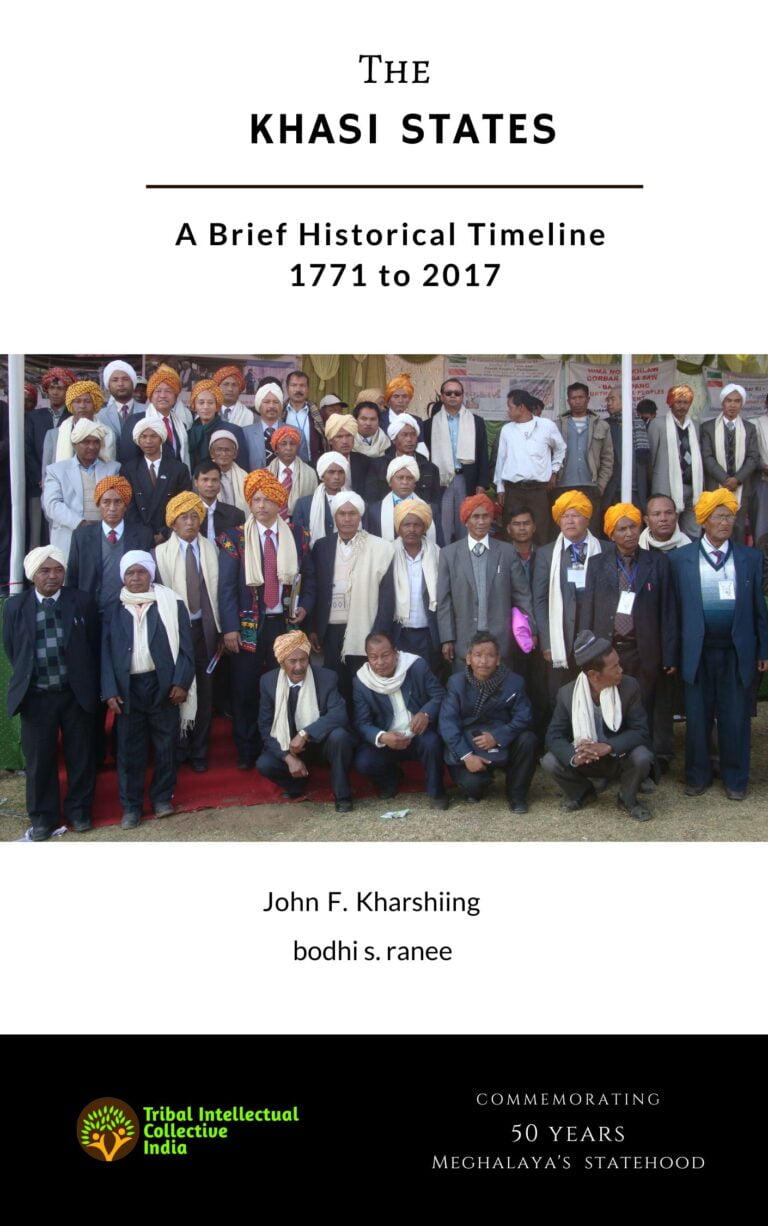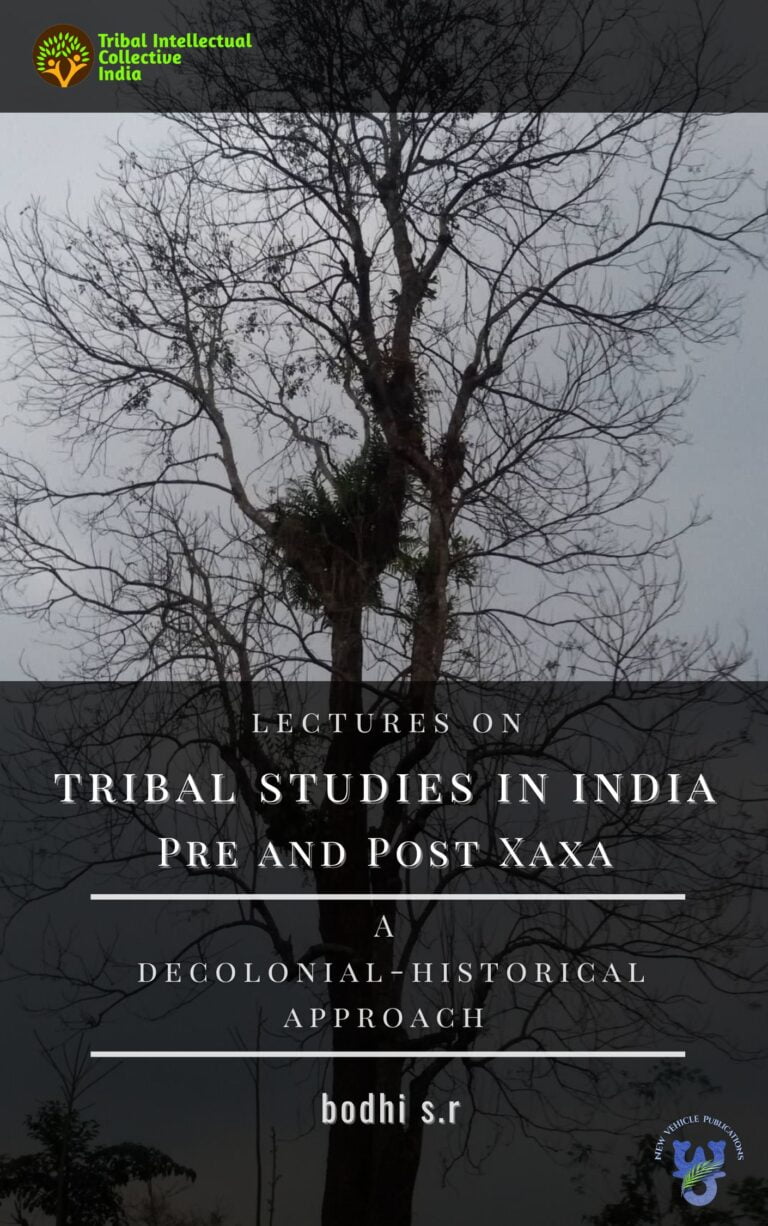|
|
|
||||||
ISSN 2321-5437 |
|
Digitized Space for Archives related to Tribes |
Greetings!
The Tribal Intellectual Collective India is a knowledge-producing community constituted by teachers, academics and knowledge partners from various Universities in India and across the globe who are engaged in Tribal, Indigenous peoples and Adivasi studies. We meet regularly in “Evening Webinars”, and once in two years at a national conference to exchange ideas, debate theoretical positions and refine our own understanding of complex concrete social conditions. We are a wholly self-sustaining collective and take no funds from any agency nor individual.
The Tribal Intellectual Collective India is led by three senior academics from the Tribal community who constitute the National Leadership Council. They are assisted by a 25-member National Academic Council. Together, these two committees form the National Council which is the decision-making body of the TICI. Members of the General Body support and contribute to TICI academic activities.
The TICI is an academic community engaging with multiple intersecting realities, with a definitive focus on Tribal episteme. Our publications encourage respectful scholarly writing that engages with fundamental issues sourced directly from people’s lived experiences. We provide opportunities for constructive theoretical engagement and critical dialogue in the interest of empowerment. Our publications are unique in the sense that it is owned and managed by the Tribal community in India.
The Journal of Tribal Intellectual Collective India (JTICI) is managed by the National Council of Tribal Intellectual Collective India (TICI). All articles submitted to the journal go through a rigorous blind peer-review process. A peer review report by two reviewers will be provided to the author within fifteen days from the date of acceptance of the article. The Journal follows the Online First publication process. The JTICI is supported by academics from the Tribal communities. The National Convener (Academic) holds the copyright of all articles in the JTICI.
Please NOTE that our Journal, the JTICI is NOT recognized by the UGC List of Care Journals and neither do we seek to be recognized in the coming future.
IMPORTANT!
We take no processing fee for articles submitted to us, nor funds from any Institution for the Tribal Intellectual Collective India. Ours is NOT a commercial project but a knowledge enterprise arising out of our felt need to engage theoretically and more rigorously with social reality.
NOTICE TO MEMBERS:
The National Council of the TICI has initiated the launching of Two physical TICI Archives – the Bodoland Centre in NERSWN Kokrajhar Campus headed by Raju Narzary, and the Kolhan Centre in Chaibasa headed by Deepak Tubid. All members are requested to send any digitized archival material to tici.archives@gmail.com.
Tribal Intellectual Collective India
| …National Leadership Council… | …Members… |
|---|---|
| Convener | Prof.Virginius Xaxa |
| National Convener (Academic) | Dr.bodhi s.r | Associate Professor and Chairperson | Centre for Social Justice & Governance | TISS | Mumbai |
| National Convener (Organisation) | Prof.Bipin Jojo | Dean | School of Social Work | TISS | Mumbai |
| …National Academic Council… | …Domain of Interest & Affiliation… |
| Dr. Venkatesh Vaditya | Social Exclusion & Justice Studies | English & Foreign Language University | Hyderabad |
| Dr. Batskhem Myrboh | Identity, Society & Politics | North Eastern Hill University | Shillong |
| Dr. Rajunayak V. | Language & Cultural Studies | English & Foreign Language University | Hyderabad |
| Dr. Pandurang Bhoye | Government, Governance & State Institutions | Savitri Phule Pune University | Pune |
| Dr. Jacob Islary | Public Health & Social Care | St.Xavier University | Kolkata |
| Dr. Joseph Riamei | Development & Community Studies | Tata Institute of Social Sciences | Guwahati |
| Dr. Biswaranjan Tripura | Indigenous Issues & International Politics | Tata Institute of Social Sciences | Mumbai |
| Prof. Alex Akhup | Social Research & Northeast Studies | Tata Institute of Social Sciences | Mumbai |
| Dr. Tadu Rimi |
Oral History & Tribal Feminism | Independent Researcher | Arunachal Pradesh
|
| Dr. Manoranjan Pegu |
Labour Studies and Trade Unions | Country Director | Sri Lanka Office | Solidarity Center
|
| Dr. Manjusha K.A. |
Tribal History and Indigenous Methodologies | Mahatma Gandhi University | Kerala
|
| Prof. Bhangya Bhukya |
History and Tribal Studies | Hyderabad Central University | Telangana
|
| Dr. Raile Rocky Ziipao | Margin Thinking & Border Studies | Indian Institute of Technology Bombay |
| Dr.Victor Narzary | Social Welfare & Development Education | Assam Don Bosco University | Assam | Currently OSD to Chief of Bodoland Territorial Region | Kokrajhar |
| Dr. Bibharani Swargiary | Tribal Feminism and Post Conflict Studies | Assam Don Bosco University | Assam |
| Mr. Neelam Kerketta |
Environment and Biodiversity Studies | Naveen Government College | Jashpur | Chhattisgarh
|
| Ms. Ritu Kongari | Law & Jurisprudence | Independent Researcher | Bengaluru |
| Dr. Babudhan Tripura | Tripura Studies | Adwaita Malla Barman Smriti Mahavidyalaya, Amarpur | Tripura |
| Ms. Nolina Minj | Tribal Feminism and Philanthropy Studies | Reporter | Scroll.in | Maharashtra and Jharkhand |
| Mr. Manish Meena | Cultural & Tribal Studies | Independent Writer and Researcher | Rajasthan |
| Ms. Hengam Riba | Education Technology and Bahujan Studies | Adhyayan Quality Education Foundation | Arunachal Pradesh |
| Ms. Alisha Tirkey | Displacement and Rehabilitation Studies | Independent Writer and Researcher | Odisha |
| Mr. Robert Khongwir | Human Resource Management & Labour Studies | Independent Columnist and Researcher | Meghalaya |
| Ms. Ruby Hembrom | Director, Adivaani Publishing House | Independent Columnist and Researcher | Jharkhand |
| Mr. John F. Kharshiing | Chairman | Society for the Promotion of Indigenous Knowledge and Practice (SPIKAP) | Shillong |
Latest Publications by National Council Members
- Becoming a Scheduled Tribe in India: The History, Process and Politics of Scheduling. Contemporary Voice of Dalits, Sage. November 2023. Link to Article
- Out of Coverage Area: Tribes and Digital Exclusion in Nort-east India. Journal of Development Policy and Practice. Sage, 2023. Link to Article
- Decolonizing Ethnography and Tribes in India: Towards an Alternative Methodology. Frontiers in Political Science. Frontiers, January, 2023. https://www.frontiersin.org/articles/10.3389/fpos.2023.1047276/full
- Ethnic Diversity and Politics of Inclusion: Tribes in North East India. Journal of Development Policy and Practice. Sage August 2022. Link to article
- Negotiating the Everyday State in Contemporary Tripura, Northeast India. Journal of Asian and African Studies. July 2022. doi:10.1177/00219096221113580 Link to Article
- Tribal Studies in India: Pre and Post Xaxa. Journal of Tribal Intellectual Collective India. Link to Article
- The Decolonial-Historical Approach in Social Research: Its Methodological Contours. Journal of Tribal Intellectual Collective India. Link to Article
- The current landscape of Philanthropy for Adivasi and Tribal Women at the Grassroots. Centre for Social Impact and Philanthropy. Ashoka University, 2021. Link to Working Paper
- Epistemology of the Peripheralized: A Decolonial-Historical Approach. Methodologies in Social Research Series of the Tribal Intellectual Collective India. New Vehicle Publications, 2020 [ISBN: 978-81-948224-4-8] Link to Book
- Infrastructure of Injustice: State and Politics in Manipur, Northeast India. Routledge: London and New York. Link to Book
- Asymmetrical Federalism in North-East India: Politics and Process. Heritage Publishers, 2019,ISBN 817026417-0, New Delhi.Link to Book
- The Problematics of Tribal Integration- Voices from India’s Alternative Centers. The Shared Mirror & Tribal Intellectual Collective India, 2019 [ISBN: 978-81-929930-3-4] Link to Book
- The Federation of Khasi States: History, Epistemology and Politics. Tribal Intellectual Collective India, 2019. [ISBN: 978-81-942059-1-3] Link to Book
- Land, Words and Resilient Cultures: The Ontological Basis of Tribal Identity. Tribal Intellectual Collective India, 2019. [ISBN: 978-81-942059-0-6] Link to Book
- Social Work- Lectures on Curriculum and Pedagogy. The New Vehicle, 2019 [ISBN: 978-81-942059-2-0] Link to Book
- Tribal and Adivasi Studies, Vol.3- Social Work in India. Adivaani & Tribal Intellectual Collective India, 2016 [ISBN: 978-93-84465-04-9] Link to Book
- Tribal and Adivasi Studies, Vol.1-Identities and Their Struggles in North East.(Adivaani & Tribal Intellectual Collective India, 2014) Link to Book
- Formulating and Teaching a Course in International Social Work: Some Curriculum and Pedagogical Insights from the Indian Context, (August 2021) International Social Work, Sage Journals. https://doi.org/10.1177/00208728211026743. Link to Article
- The Dalit Curriculum from Two Perspective. Curriculum Inquiry, Routledge. Link to article
- Politicising Road Infrastructure in Manipur: Spatial and Temporal Relation.’Economic and Political Weekly, LVI(4):38-42. Link to Article
- Historicising Tribal Struggles for Epistemological Integration in India. Vol. 71(03): 221-233, July-September 2021. Social Action- A Quarterly Review of Social Trends, Indian Social Institute, New Delhi. Link to Article
- Tribes and State Policy in India: Revisiting Governing Principles from a Decolonial Social Work Perspective.Vol.50 (8): 2372-2388, December 2020. The British Journal of Social Work. Oxford Academic. https://doi.org/10.1093/bjsw/bcaa186 Link to Article
- Frontier Tribes and Nation States: Infrastructuring Indo (Naga)-Myanmar Borderland. Asian Ethnicity. doi.org/10.1080/14631369.2020.1856643Routledge Publication. Link to Article
- Roads (Not) Taken: The Materiality, the Poetics, and the Politics of Infrastructure in Manipur, India. Journal of South Asian Development, 15(1): 34-62. Sage Publication.Link to Article
- Look/Act East Policy, Roads, and Market Infrastructure in North-East India. Strategic Analysis, 42 (5): 476-489, Routledge Publication. Link to Article
- Khasi Political Reality and the Struggle for Statehood: History, Context and Political Process. In Handbook of Tribal Politics in India [eds] Ambagudia, J & Xaxa, V. January 2021. Sage India Publishing. [ISBN: 978-93-5388-458-1] Link to Chapter
- The Politics of Tribal Representation in Manipur. In Ambagudia Jagannath and Xaxa Viginius (ed) (2021): Tribal Politics in India, Sage Publishing, HB: 978-93-5388-458-1. Link to Chapter
- Researching District Councils of Manipur From an Asymmetrical Federalism: Unraveling Complexities of Research Processes. Jharkhand Journal of Development and Management Studies (ISSN 0973-8444), XISS, Ranchi, Vol. 19, No. 3, July-September 2021, pp. 8923-8935. Link to Article
- Coloniality, Global Power Asymmetry and Epistemic Liberation. Social Epistemology Review and Reply Collective, 10 (11): 10-18. Link to Article
- Political Accommodation and Tribal Electoral Politics in Andhra Pradesh and Telangana. In Jagannath Ambagudia and Virginius Xaxa (Eds) Handbook of Tribal Politics in India, New Delhi, Sage Publications, (2021) pp. 167-189. (ISBN 978-93-5388-458-I). Link to Chapter
- Roads, Tribes, and Identity in Northeast India. Asian Ethnicity, 21 (1): 1-22. Routledge publication. Link to Article
- Social Domination and Epistemic Marginalisation: towards Methodology of the Oppressed. Social Epistemology: A Journal of Knowledge, Culture and Policy, Published online: 04 May 2018, (Print ISSN: 0269-1728, Online ISSN: 1464-5297). Link to Article
- Social Imaginary and Epistemic Discrimination: From Global Justice to Epistemic Injustice. Social Epistemology Review and Reply Collective, 9 (10): 1-7. (ISSN 2471-9560).Link to Article
- Economic Liberalization and Farmers’ Suicides in Andhra Pradesh (1995-2014). South Asia Research, Vol. 37, Issue 2, 2017, pp. 194 –212, (ISSN: 02627280). Link to Article
- Human Rights, Development and Tribal Movements in India: Critical Reflections. Social Action: A Quarterly Review of Social Trends, July-September 2021, 71 (3), pp. 311-323, (ISSN 0037-7627). Link to Article
Public Lectures by Members
- Dr. bodhi s.r on “Becoming a Scheduled Tribe in India: History and Process”. Link
- Dr. Raile R.Ziipao on “Vision 2047 for Tribes in India”. Link
- Dr. Batskhem Myrboh on “Vision 2047 for Tribes in India”. Link
- Dr. Lavinia Mawlong on “Vision 2047 for Tribes in India”. Link
- Mr. Biswaranjan Tripura on “Vision 2047 for Tribes in India”. Link
- Mr. Manoranjan Pegu on “Vision 2047 for Tribes in India”. Link
- Prof. Virginius Xaxa on “Tribal Studies in India”. Link
- Prof. Bipin Jojo on “Tribal Studies in India”. Link
- Prof. Alex Akhup on “Identities and their Struggles in North East”. Link
- Ms. Ruby Hembrom on “Challenges Before an Indigenous Publishers and Her Authors”. Link

